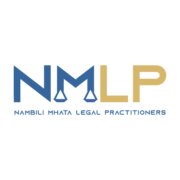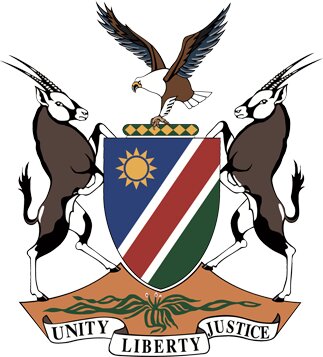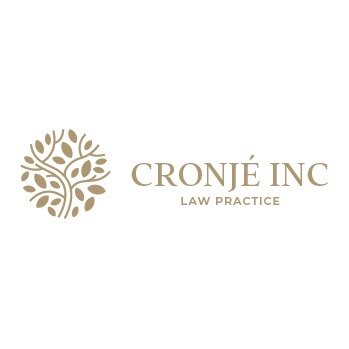Best Housing, Construction & Development Lawyers in Namibia
Share your needs with us, get contacted by law firms.
Free. Takes 2 min.
Free Guide to Hiring a Real Estate Lawyer
Or refine your search by selecting a city:
List of the best lawyers in Namibia
About Housing, Construction & Development Law in Namibia:
Housing, Construction & Development Law in Namibia governs the legal rights and responsibilities related to the acquisition, development, construction, and ownership of properties. This includes issues such as land use planning, building regulations, property disputes, and contracts related to real estate transactions.
Why You May Need a Lawyer:
You may need a lawyer specializing in Housing, Construction & Development Law in Namibia for various reasons, including resolving disputes with contractors, navigating complex zoning regulations, drafting and reviewing construction contracts, dealing with property title issues, and seeking compensation for construction defects or delays.
Local Laws Overview:
In Namibia, the key laws relevant to Housing, Construction & Development include the Town Planning Ordinance, the Deeds Registry Act, the Building Control Act, and the Agricultural (Commercial) Land Reform Act. These laws regulate land use planning, property registration, building standards, and land reform initiatives in the country.
Frequently Asked Questions:
1. Can I challenge a zoning decision by the local government?
Yes, you can challenge a zoning decision through an appeals process or by seeking legal recourse in court if you believe the decision was unlawful or unfairly prejudicial.
2. How can I protect my rights as a homeowner during a construction project?
You can protect your rights by ensuring that you have a detailed written contract with the contractor, monitoring the construction progress closely, and seeking legal advice if disputes arise.
3. What are the key steps involved in purchasing property in Namibia?
The key steps include conducting a title search, negotiating the terms of sale, signing a sale agreement, transferring ownership through the Deeds Registry, and paying the relevant transfer duties.
4. What are my rights as a tenant in Namibia?
Tenants in Namibia have rights related to privacy, habitability, and protection from unfair eviction. Landlords must adhere to the provisions of the Rental Housing Act.
5. How can I resolve a property boundary dispute with my neighbor?
You can resolve a property boundary dispute through mediation, arbitration, or legal action in court. It is advisable to seek legal advice to understand your rights and options in such situations.
6. What permits do I need for a construction project in Namibia?
You may need permits related to building construction, land use change, environmental impact assessment, and water usage, depending on the scope and location of your project. It's important to consult with local authorities and legal experts to ensure compliance.
7. How can I ensure compliance with building regulations in Namibia?
You can ensure compliance by hiring qualified professionals, obtaining the necessary permits, following the approved building plans, and conducting regular inspections to verify adherence to regulations.
8. Can I seek compensation for construction defects in Namibia?
Yes, you can seek compensation for construction defects through legal action against the responsible parties, such as contractors, architects, or suppliers. It's important to document the defects and seek legal advice to understand your options for recourse.
9. What are the common types of construction contracts used in Namibia?
Common types of construction contracts in Namibia include lump-sum contracts, cost-plus contracts, design-build contracts, and construction management contracts. Each type has its own advantages and considerations, so it's important to choose the most suitable option for your project.
10. How can I address disputes with contractors or subcontractors in Namibia?
You can address disputes through negotiation, mediation, arbitration, or litigation, depending on the nature and severity of the issue. Having a well-drafted contract with clear dispute resolution clauses can help prevent and resolve conflicts effectively.
Additional Resources:
For more information on Housing, Construction & Development Law in Namibia, you can consult the Ministry of Urban and Rural Development, the Namibian Planning & Architecture Association, and the High Court of Namibia for legal guidance and support.
Next Steps:
If you require legal assistance in Housing, Construction & Development in Namibia, it is advisable to seek advice from a qualified lawyer specializing in real estate law. You can schedule a consultation to discuss your specific circumstances and explore the best course of action to protect your rights and interests.
Lawzana helps you find the best lawyers and law firms in Namibia through a curated and pre-screened list of qualified legal professionals. Our platform offers rankings and detailed profiles of attorneys and law firms, allowing you to compare based on practice areas, including Housing, Construction & Development, experience, and client feedback.
Each profile includes a description of the firm's areas of practice, client reviews, team members and partners, year of establishment, spoken languages, office locations, contact information, social media presence, and any published articles or resources. Most firms on our platform speak English and are experienced in both local and international legal matters.
Get a quote from top-rated law firms in Namibia — quickly, securely, and without unnecessary hassle.
Disclaimer:
The information provided on this page is for general informational purposes only and does not constitute legal advice. While we strive to ensure the accuracy and relevance of the content, legal information may change over time, and interpretations of the law can vary. You should always consult with a qualified legal professional for advice specific to your situation.
We disclaim all liability for actions taken or not taken based on the content of this page. If you believe any information is incorrect or outdated, please contact us, and we will review and update it where appropriate.
Browse housing, construction & development law firms by city in Namibia
Refine your search by selecting a city.















